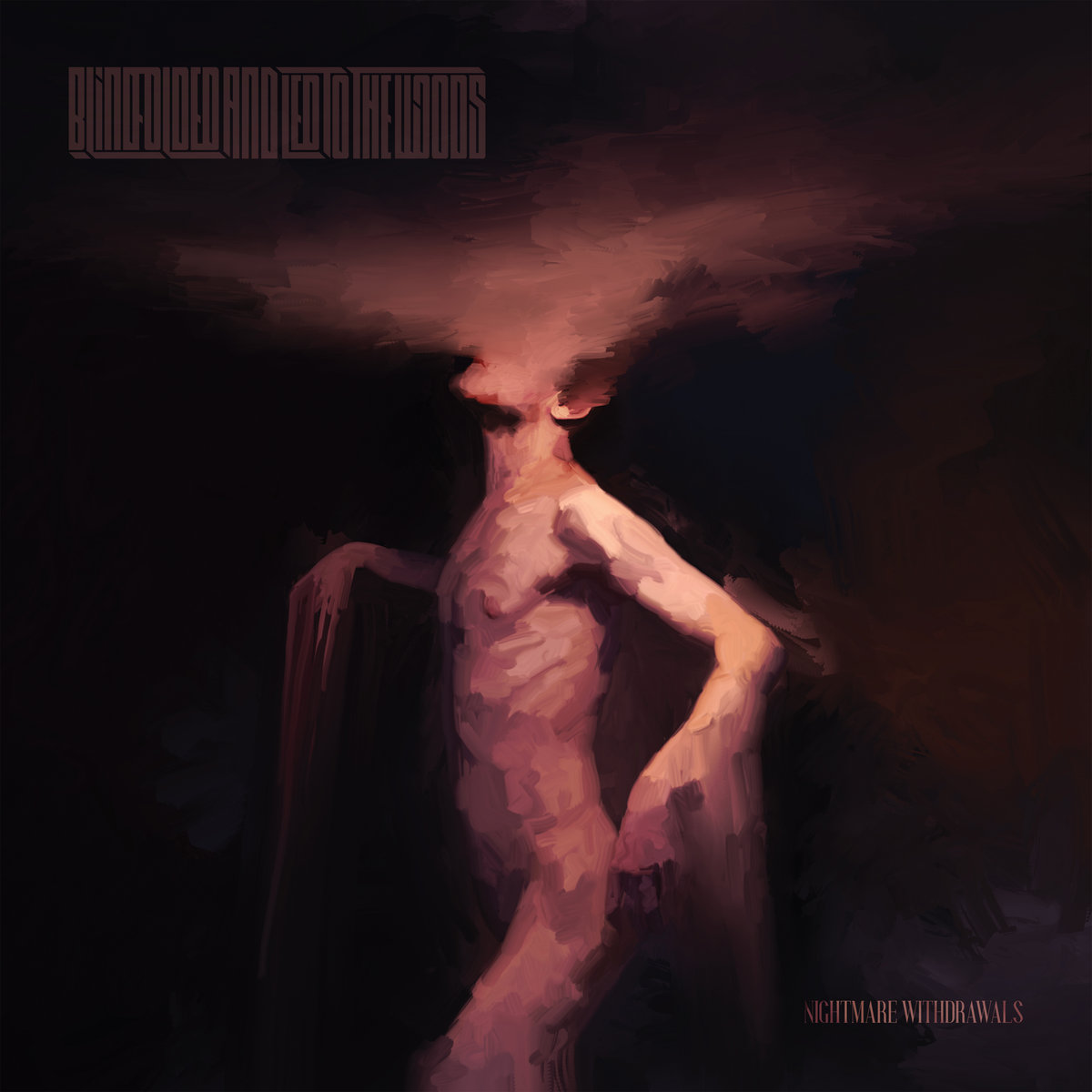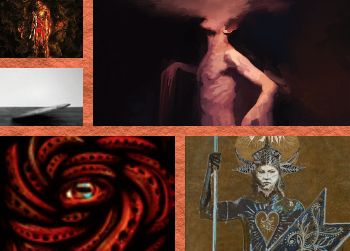I’m Reece, part of the Music Specialist team here at Wellington City Libraries. As part of joining the team, I’ve been asked to cast my discerning eye and ear over an area close to my heart – the metal CD collection. This collection kickstarted a journey into the darker realms of music when I borrowed an Opeth album back in 2005 and discovered harsh vocals within 5 seconds, changing the path of my life irreparably. Here’s some mini reviews of heavier albums we’ve acquired on disc in the last year – all of which can be borrowed or reserved today.
Gojira have turned their thick brand of groove/death metal into a world-conquering, festival-packing force over the past decade, and Fortitude (their 7th album) seems very ready to keep that ticking along. The band switch between their classic Gojira riffs (syncopated, chromatic, chuggy, spiced with natural harmonics and pickscrapes) to stompy stadium rock beats with harsh vocal lines that straddle the gap between gravelly rock singers and the vocal-chord-scraping stylings of traditional death metal vocalists, but break out into soaring group clean vocals at opportune chorus moments. Despite the album’s release during the peak of reduced capacity shows and cancelled tours, it feels like it was designed to be heard in the open air live environment more than any previous album – even the most technical and intense instrumental sections are used to service the next Big Hook that’s never far away.
Churning, oppressive and impossibly mechanical, the extended range monsters emerge for another cycle. All the elements of Meshuggah’s modern era are here; bending guitar notes falling off the low register of the 8-string, fragmented kick drums drifting and floating around the anchoring right hand cymbal patterns, emphasised by a snare that always cracks at the perfect moment to ensure groove and continuity is maintained, even when it feels like your ears are being stretched over an extra bar to get there. Atmospheric guitar leads call to mind synthesiser pads and malfunctioning equipment and once you’re shifted past that part of the infinite production line, the harsh vocals begin to venomously articulate each syllable of the band’s dystopian vision, pushing and pulling another rhythmic and textural layer over the instrumental machinations. If you’ve listened to a Meshuggah album before, there’s not really anything surprising added to the core formula, but another body-rearranging journey into their monolithic factory usually goes down a treat.
Mountainous sludge riffs emerge and crash from textured feedback, guided only by sparse thumping percussion and the occasional crash cymbal as a beacon. Above it all, emotional vocals lift with the peaks of the riffs to add a level of harmony and expression, not normally found in these lands of amplifier worship, and gently glide back down to keep a living, breathing element to the songs even when all the instruments go silent. Vital is built on top of the textures of ambient and drone, but with an extremely organic feel to the band pulling their crushing passages out of the waves. You’ll need your volume absolutely cranked to get everything out of the dynamics of this one.
Tangaroa sees the Māori young guns expand on their groove metal sound with a few more years under their belts. The proficiency on the instruments has definitely increased, especially when they dig in on the rhythm guitar gallops and heavier fills, and the Te Reo lyric patterns flow in a way unheard in metal music before. When the band brings a little bit more intensity to the instrumentals it really pays off, like the doublekick riff at the end of the otherwise low-key Unforgiving or the main riffs of Kai Whatu. To contrast, the soundscape, sample and taonga pūoro elements that appear from time to time do an excellent job of backing up the identity of the record – a well rounded dynamic album. Hopefully there will be a lot more to come, as the band take full advantage of their overseas touring opportunities re-emerging.
 Blindfolded and Led to the Woods – Nightmare Withdrawals
Blindfolded and Led to the Woods – Nightmare Withdrawals
Another New Zealand release, the third Blindfolded album is an absolute force to be reckoned with. Sliding, arpeggiated and raking guitar acrobatics represent Aotearoa to a world class level in the dissonant technical death metal sphere, and the distorted bass and punished drumkit provide a rhythmic foundation for some of the best organic passages in a genre often dominated by sterile and robotic sounds. Furious harsh vocals bring the entire project together, which deal with processing the impact of the Christchurch earthquakes through thoughtful despair, existential dread and a light touch of the band’s earlier absurdity (more death metal releases should have Twin Peaks references, so this is definitely a positive). I still find new flourishes and details on this album with every listen, entirely essential for anyone who loves a blastbeat or twenty. We’ve also got this one on vinyl out at Johnsonville if you’re inclined that way.
Another slow one, Divide and Dissolve incorporate what feels like chamber music instrumentation (provided by saxophone and effects) alongside lo-fi fuzzed out drone-doom. Hypnotic and haunting regardless of which instrumental mode they’re choosing at any given moment, the two piece defiantly stride through their murky landscapes, painfully stretching out their doom riffs and drum beats to new tempos and feels. When the onslaught finally relents, layers of rich anguished chords from the saxophone emerge to show you that shelter from the storm might sound like a relief, but there’s still plenty of pain to deal with as you rest.





